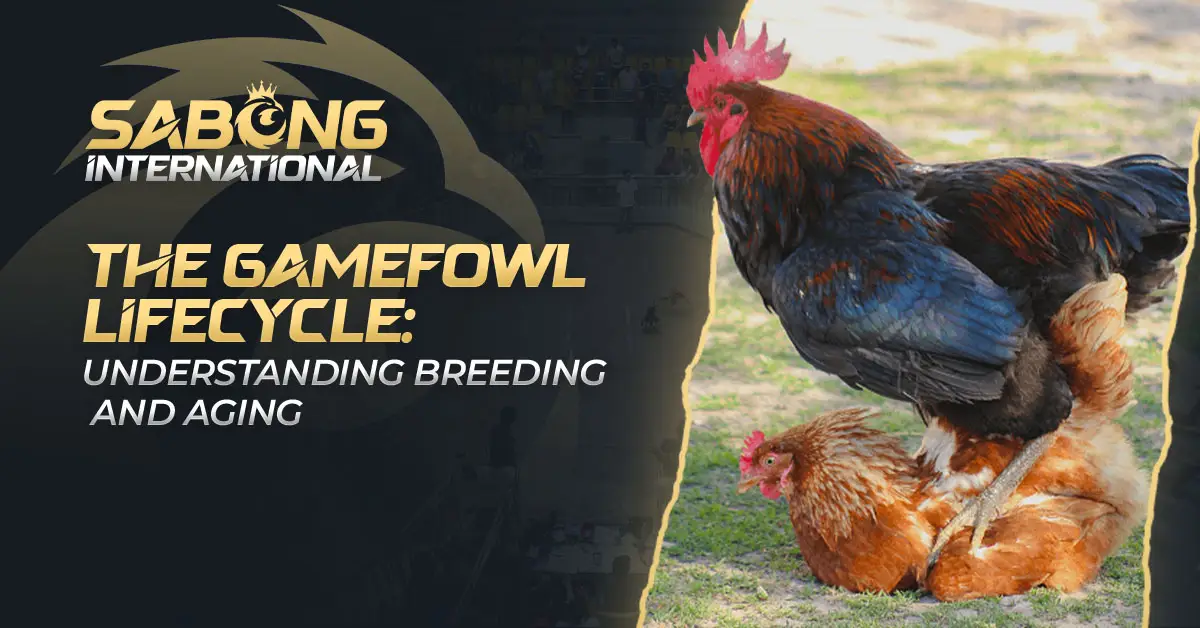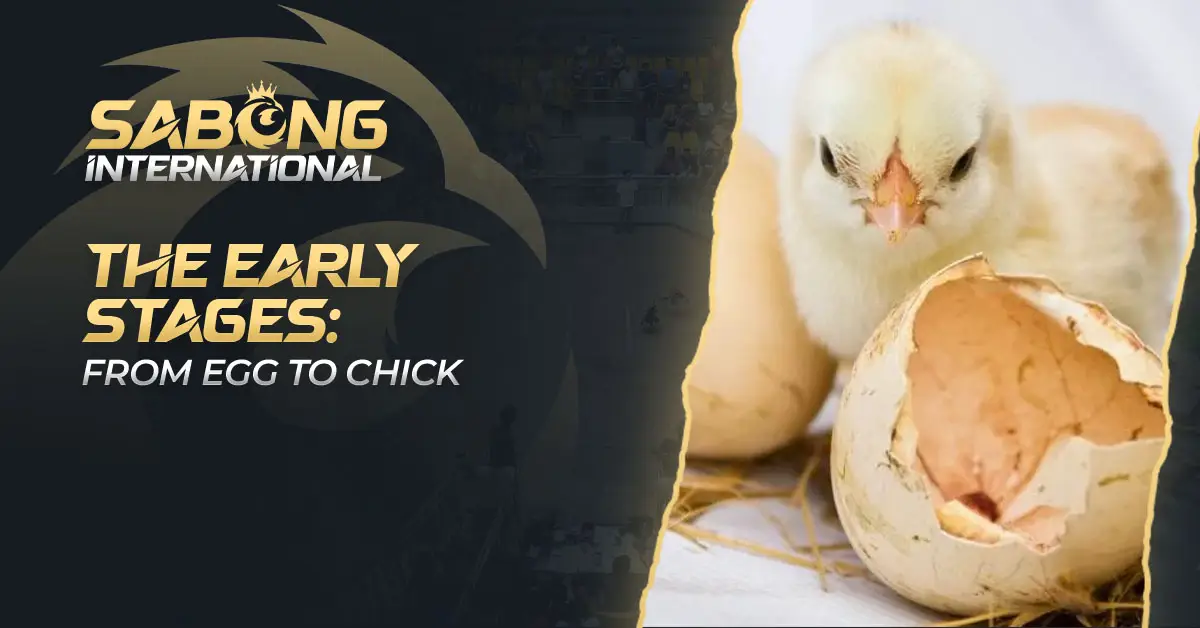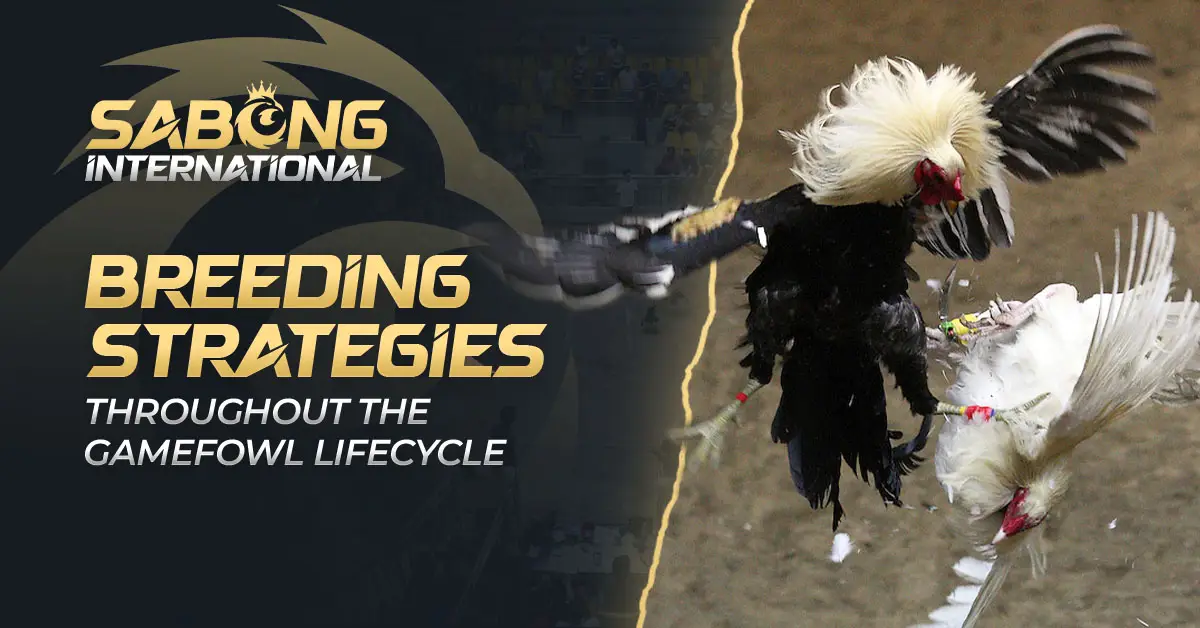The Gamefowl Lifecycle: Understanding Breeding and Aging

Welcome to the fascinating world of gamefowl!
These birds aren’t just your average backyard chickens.
They’re a blend of beauty, strength, and mystery.
Today, we’re going to unravel the secrets of the gamefowl lifecycle, focusing on two critical aspects: breeding and aging.
So, let’s embark on this journey of discovery together!
Key Takeaways
| Key Aspect | Description |
|---|---|
| Early Stages | From egg to chick, the crucial beginning of a gamefowl's life. |
| Growth Phase | Key changes as they develop into young gamefowl. |
| Maturity and Aging | Understanding the prime years and the aging process. |
| Breeding Strategies | How to manage breeding throughout their lifecycle. |
Gamefowl are more than just birds; they are a symbol of heritage and pride in many cultures.
Understanding their lifecycle, especially the nuances of breeding and aging, is essential for anyone passionate about these magnificent creatures.
Whether you’re a seasoned breeder or a curious enthusiast, this guide is your gateway to understanding the intricate world of gamefowl.
Understanding Gamefowl: An Overview
Before we dive into the specifics, let’s set the stage.
Gamefowl are not your ordinary poultry.
They are often bred for their strength, agility, and unique characteristics.
From being central to cultural rituals to starring in competitive sports, gamefowl have a rich history that spans across continents.
The Early Stages: From Egg to Chick

The journey of a gamefowl begins much before it sees the world.
It starts in the egg.
The Breeding Gamefowl Process
- Selecting Breeding Pairs: It’s like matchmaking but for birds. The health, lineage, and traits of the parents are crucial.
- Egg Laying: The female lays eggs, and the anticipation begins.
Incubation and Hatching
- Incubation: This is the waiting game. Eggs are incubated, either naturally or artificially, until they hatch.
- Hatching: The moment of truth! The chicks break free from their shells, ready to start their journey.
Bet on Sabong with Sabong International now!
Early Development
- First Steps: Chicks are fragile but quick to start exploring.
- Key Factors: Nutrition and environment in these early days are vital for their growth.
Growth Phase: Developing into Young Gamefowl
As chicks grow, they start showing their true colors, literally and figuratively.
Physical and Behavioral Changes
- Feathers and Build: Watch as they develop their distinctive feathers and build.
- Behavioral Traits: Each chick starts to show its unique personality and traits.
Nutrition and Healthcare
- Feeding: What you feed them now lays the foundation for their future health.
- Health Checks: Regular check-ups are crucial to catch any issues early.
Training and Conditioning
- Early Training: Simple exercises and activities help in their development.
- Conditioning: Preparing them for the future, whether it be for shows, sports, or breeding.
Maturity: The Prime of Gamefowl
Welcome to prime time! This is when gamefowl are at their best.
Characteristics of Mature Gamefowl
- Physical Peak: They’re now fully grown, showcasing their majestic presence.
- Behavioral Maturity: Mature gamefowl have a more settled and defined behavior.
Breeding Gamefowl Considerations
- Choosing the Right Time: Knowing when to breed them is key.
- Health and Genetics: Ensuring they are healthy and their genetic traits are desirable for breeding gamefowl.
Maintaining Health and Vigor
- Regular Exercise: Keeps them in top shape.
- Balanced Diet: A nutritious diet is essential for their well-being.
Aging in Gamefowl
Aging happens to the rooster naturally.
As they grow older, they undergo physical and behavioral changes.
It’s important to understand these changes for proper care.
Now, let’s learn about aging and how to care for older gamefowl.
Understanding the Aging Process
- Signs of Aging: Slower movements, less vigor, and changes in appearance are common signs.
- Behavioral Changes: Older gamefowl might become less active and more prone to health issues.
Care for Older Gamefowl
- Special Diets: As they age, their dietary needs change.
- Comfortable Living Conditions: Ensuring they have a comfortable environment is key to their well-being in old age.
Breeding Strategies Throughout the Gamefowl Lifecycle

Breeding gamefowl isn’t just about putting two birds together and hoping for the best.
It’s a science, an art, and a bit of magic all rolled into one.
Genetic Considerations in Breeding
- Picking the Right Genes: It’s like being a genetic matchmaker. You want to pair birds that complement each other’s strengths.
- Monitoring Traits: Keep an eye on the traits that are passed down. It’s all about enhancing the best qualities.
Timing and Frequency of Breeding Cycles
- Seasonal Breeding: Timing is everything. Breeding usually happens seasonally, so knowing the right time is crucial.
- Rest Periods: Give your birds a break. Rest periods between breeding cycles are essential for their health.
Managing the Breeding Stock
- Health Checks: Regular health checks ensure your breeding stock remains in top condition.
- Rotation: Don’t overburden your birds. Rotate your breeding stock to maintain a healthy, vibrant population.
Common Health Issues and Lifecycle Management
Just like any living creature, gamefowl can face health challenges.
But with the right knowledge, you can keep them strutting strong.
Identifying and Addressing Common Health Issues
- Parasites and Diseases: Be on the lookout for signs of illness, like lethargy or loss of appetite.
- Injury Prevention: Regular checks can help prevent injuries, especially in active gamefowl.
Preventative Healthcare
- Vaccinations: Keep up with vaccinations to prevent common diseases.
- Regular Vet Visits: A vet can catch things you might miss. Regular visits are a must.
Role of Diet and Exercise
- Balanced Diet: A nutritious diet keeps them healthy inside and out.
- Regular Exercise: Exercise isn’t just for humans. It keeps gamefowl fit and happy.
Ethical Considerations in Gamefowl Management
Let’s talk about ethics.
It’s important to remember that these are living creatures, deserving of respect and care.
Humane Treatment
- Living Conditions: Ensure they have enough space, clean water, and a comfortable environment.
- Handling: Handle your gamefowl with care and respect. They’re not just animals; they’re part of your team.
Responsible Management Practices
- Breeding Gamefowl Ethics: Breed responsibly. It’s not just about quantity; it’s about quality and health.
- Health and Welfare: Always prioritize the health and welfare of your gamefowl. They depend on you.
Conclusion
And there you have it!
A comprehensive guide to the lifecycle of gamefowl, from the early stages to breeding gamefowl and aging.
Remember, understanding and respecting these stages is key to successful gamefowl management.
So, take this knowledge, apply it, and watch as your feathered friends thrive under your care.
FAQs
The ideal age for breeding gamefowl is typically around 1-2 years.
At this age, they're mature enough to breed successfully and still in their prime.
Signs of aging in gamefowl include less activity, slower movements, and changes in their feathers.
They might also eat less and show less interest in their surroundings.
Aging gamefowl benefit from a diet lower in protein and higher in vitamins and minerals.
Consult with a vet to create a diet that supports their aging bodies.
Vaccination schedules can vary, so it's best to consult with a veterinarian.
Generally, vaccinations are given annually or as recommended by your vet.
Yes, it can be ethical as long as you provide proper care, humane living conditions, and prioritize their health and welfare.
Responsible breeding practices are key.


